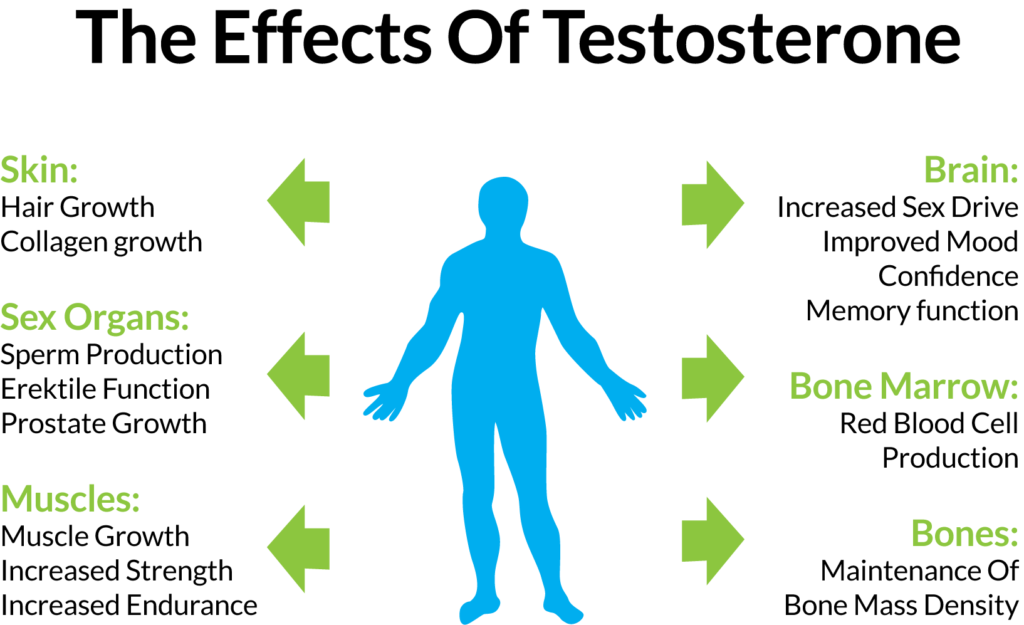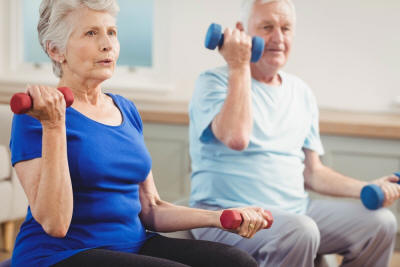I’d like to talk about Testosteron today, a synonym of male hormone that is the important key to a man who has entered the latter half of his life to be healthy and live long after that.
Hi how are you? And how’s your physical condtion as a male recently? Frankly speaking, this is a sure thing that the more aging , the more concerned about the physical condition as a male.
目次
What is ” testosteron “?
Testosterone or male hormone, However, both men and women produce this hormone. Hormones are molecules that regulate the body. They are usually produced in one location in the body and travel to other organs. Other hormones in the body include growth hormone and thyroid-stimulating hormone.

Testosterone is an androgen hormone. It produces male characteristics in the body. Testosterone is made in the following locations:
● testes in men
● ovaries in women
● the adrenal glands, located above the kidneys in both men and women
Men have higher levels of testosterone in their bodies than women do. In either sex, if testosterone levels become imbalanced, adverse symptoms can occur.
How is testosterone used in men and women?
Testosterone is responsible for many actions in the male body throughout a man’s life cycle. It helps the external and internal organs of a male fetus develop. This includes the male reproductive organs such as the penis and testicles. During puberty, testosterone is responsible for:
● growth spurts
● deepening of the voice
● growth of hair in the pubic region, face, and underarms
Testosterone is also associated with behaviors such as aggression and sexual drive. Men need testosterone to make sperm for reproduction.
In women, testosterone also contributes to a woman’s sex drive. It also helps to secrete hormones important in a woman’s menstrual cycle.
Testosterone also plays common roles for both sexes. For example, the hormone stimulates the body to make new red blood cells. Testosterone can also affect a man’s bone density, fat distribution, and muscle strength.
At the same time, low testosterone, also known as “low T,” is a common condition in men as they get older. Testosterone levels naturally decline with age.
In their 60s, roughly 20 percent of men have low testosterone, according to the Urology Care Foundation. Among men in their 70s, that number rises to 30 percent. And by the time men have reached their 80s, about half of them have had a drop in testosterone levels.

What’ symptoms of when male hormone decreases
It is said that the decline of male hormones is related to male menopause. In addition, systemic malaise and insomnia, abnormal sensory abnormalities, such as decreased libido, symptoms similar to menopause in women, feel the so-called indefinite complaints, there are many people start appealing for a slump.
★ Low testosterone in men can cause many physical symptoms. It can also cause insulin resistance, which can contribute to diabetes. Examples of symptoms caused by low testosterone in men include:
● decreased sex drive
● erectile dysfunction
● higher percentage of stomach fat
● gynecomastia (development of breast tissue)
● infertility
● lack of body hair
● lack of deepening of the voice
● low muscle mass
● slowed growth of the testicles or penis

★ In women, low testosterone can result in:
● decreased sex drive
● infertility
● irregular or absence of menstrual periods, known as amenorrhea
Low testosterone in women can be caused by:
● long-term use of oral contraceptives
● old age
● ovarian failure or removal of both ovaries
★ In both genders, low testosterone levels can cause mood changes such as:
● lack of motivation
● depression
● difficulty concentrating
● problems with memory
● insomnia
How to increase testosterone levels naturally?
★ Exercise and Lift Weights
Exercise is one of the most effective ways to prevent many lifestyle-related diseases. Interestingly, it can also boost your testosterone.
A large review study found that people who exercised regularly had higher testosterone levels. In the elderly, exercise increases testosterone levels, fitness and reaction time.
New research in obese men suggests that increased physical activity was even more beneficial than a weight loss diet for increasing testosterone levels.

Resistance training, such as weight lifting, is the best type of exercise to boost testosterone in both the short- and long-term.
High-intensity interval training can also be very effective, although all types of exercise should work to some extent.
Taking caffeine and creatine monohydrate as supplements may further boost your levels when combined with a training program
★ Eat Protein, Fat and Carbs
What you eat has a major impact on testosterone as well as other hormone levels.
Therefore, you must pay attention to your long-term calorie intake and diet strategy.
Constant dieting or overeating may disrupt your testosterone levels.
Eating enough protein can help maintain healthy levels and aid in fat loss, which is also associated with your testosterone.
Carb intake also plays a role, with research showing carbs can help optimize testosterone levels during resistance training.
However, research demonstrates that sufficient healthy fats are also beneficial for testosterone and health.
A diet based mainly on whole foods is best, with a healthy balance of fat, protein and carbs. This can optimize both hormone levels and long-term health.
★ Minimize Stress and Cortisol Levels
Research is always highlighting the dangers of long-term stress, which can elevate levels of the hormone cortisol.
Unnatural elevations in cortisol can quickly reduce testosterone. These hormones work in a seesaw-like manner: as one goes up, the other comes down.
Stress and high cortisol can also increase food intake, weight gain and the storage of harmful body fat around your organs. In turn, these changes may negatively impact your testosterone levels.
For both optimal health and hormone levels, you should try to reduce repetitive stressful situations in your life.

Focus on a diet based on whole foods, regular exercise, good sleep, laughter and a balanced lifestyle, all of which can reduce stress and improve your health and testosterone levels
★ Get Some Sun or Take a Vitamin D Supplement
Vitamin D is quickly becoming one of the world’s most popular vitamins.
Research has shown that it has various health benefits, and may also work as a natural testosterone booster.
Despite its importance, nearly half of the US population is deficient in vitamin D, and an even higher percentage has sub-optimal levels.
A 12-month study found that supplementing with around 3,000 IU of vitamin D3 per day increased testosterone levels by around 25%.
In the elderly, vitamin D and calcium also optimized testosterone levels, which led to a reduced risk of falling.
To boost testosterone and reap the other benefits of vitamin D, try to get regular exposure to sunlight or take around 3,000 IU of a vitamin D3 supplement daily.

★ Take Vitamin and Mineral Supplements
Although the benefits of multivitamins are hotly debated, specific vitamins and minerals may be beneficial.
In one study, zinc and vitamin B supplements increased sperm quality by 74%. Zinc also boosts testosterone in athletes and those who are deficient in zinc.
Other studies also suggest vitamins A, C and E can play a role in your sex hormone and testosterone levels, although more research is needed.
Out of all the vitamins and minerals available, the research on testosterone shows vitamin D and zinc supplements may be best.
★ Get Plenty of Restful, High-Quality Sleep
It may also have major effects on your testosterone levels.
The ideal amount of sleep varies from person to person, but one study found that sleeping only 5 hours per night was linked to a 15% reduction in testosterone levels.
One long-term study observed that those who slept only four hours per night had borderline deficient levels.
Other long-term studies support this. One study calculated that for every additional hour of sleep you get, testosterone levels rise 15% higher, on average.
Although some people seem to do fine with less sleep, research suggests around 7–10 hours of sleep per night is best for long-term health and your testosterone.
★ Follow a Healthy Lifestyle and Avoid Estrogen-like Compounds

A healthy sex life plays an important role in regulating your sex hormone and testosterone levels.
High exposure to estrogen-like chemicals may also affect your levels, so try to minimize daily exposure to BPA, parabens(any of a group of compounds used as preservatives in pharmaceutical and cosmetic products and in the food industry) and other chemicals found in some types of plastic.
It’s probably no surprise that excess alcohol or drug use, whether it’s medical or recreational, can also decrease testosterone levels.
In contrast, laughter, happiness and success may help boost your health and testosterone levels — so make sure they’re a part of your daily life
Finally, shall we enjoy the rest of our life in compliance with these lessons!


Leave a Comment